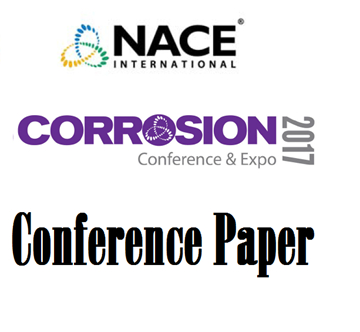Search
51314-4127-Instrumented Test Coupons for Enhanced Evaluation of Material Performance
Also Purchased
Atmospheric Corrosion in the Laboratory and the Role of Mass Loss Coupons in Test Monitoring
Product Number:
51317--9125-SG
ISBN:
9125 2017 CP
Publication Date:
2017
$20.00
98661 CATHODIC PROTECTION PARAMETERS MEASURED ON CORROSION COUPONS AND PIPES BURIED IN THE FIELD
Product Number:
51300-98661-SG
ISBN:
98661 1998 CP
$20.00
51314-4089-Correlation of Hydrogen Flux with Corrosion Rates Attending High Temperature Acid Corrosion
Product Number:
51314-4089-SG
ISBN:
4089 2014 CP
Publication Date:
2014
$20.00




